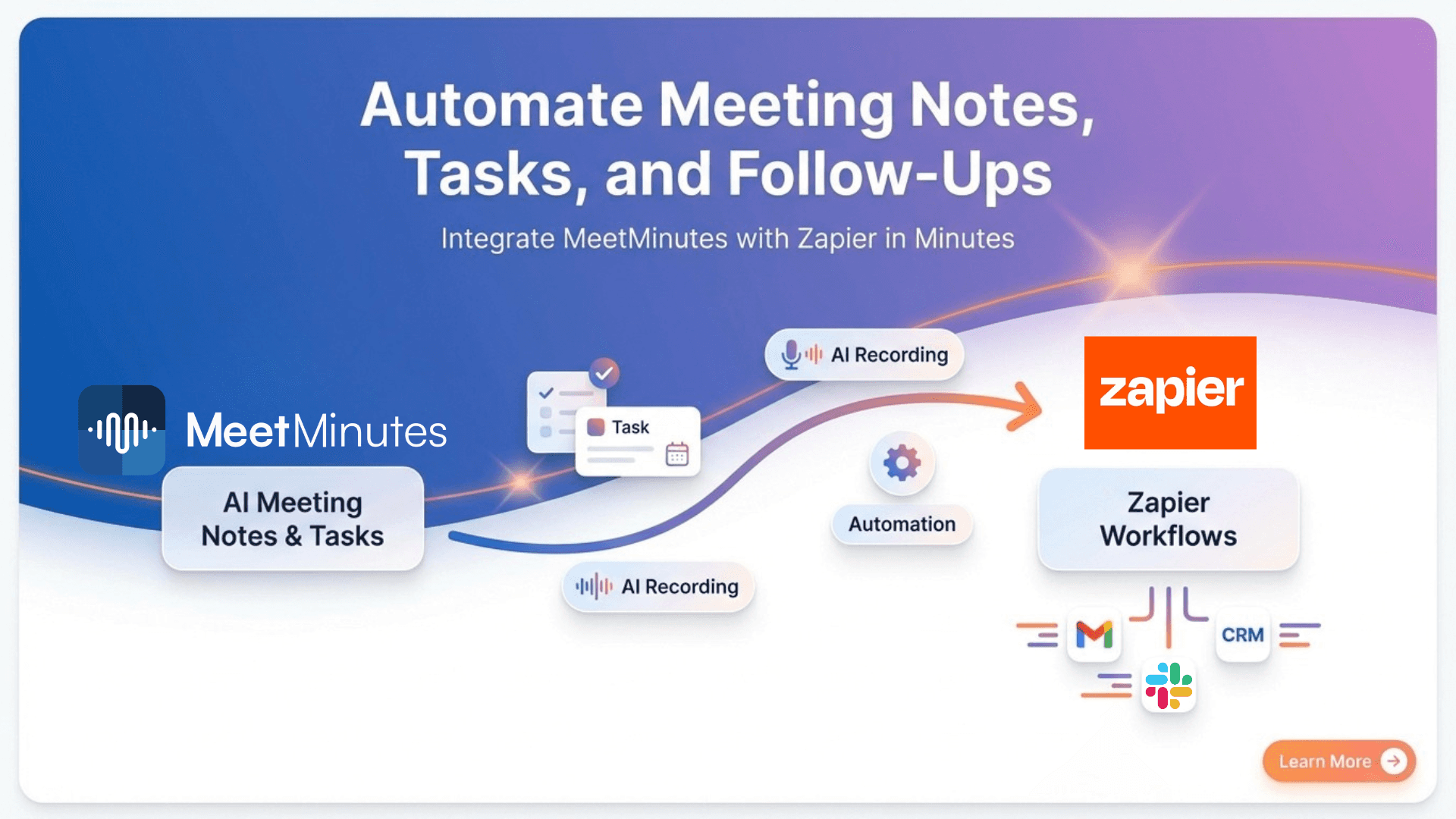Why 70% of Meetings Don't Work (and How AI Can Help)
Oct 9, 2025
|
6
min read

If you walk into any office on a Monday morning, you'll hear the same sigh: "Another meeting?" Wasn't there one last week?
Although meetings are meant to foster interpersonal relationships, research indicates that up to 70% of them are ineffective (as reported by Doodle's "State of Meetings" report and the Harvard Business Review). Considering how much time and money businesses invest in them, that figure is startling.
The true question, however, is: what can we do to improve meetings and why do so many of them fail?
Why Most Meetings Don't Work
No clear goal
The reason for calling too many meetings is that "it's what we do every week." People get distracted, decisions are put off, and conversations go awry when there is no clear agenda.
Excessive Talk and Insufficient Action
Research indicates that in many meetings, only a select few speak the most. Silence from some people can result in groupthink or the omission of viewpoints.
Note-Taking Mess
After a meeting, how many times have you asked yourself, "What did we decide?" People cannot remember every detail, especially in conversations that move quickly, Important details are omitted.
Action Items Are Misplaced
63% of workers believe meetings don't follow up, per a Microsoft study. Tasks are not tracked, but decisions are made. Half of the "action items" are forgotten by the next meeting.
Barriers to Language and Access
Subtleties are missed in a country like India where teams regularly switch between regional languages and English in the middle of a conversation. A misheard word can easily lead to a missed deadline.
Where AI Steps In
The field of artificial intelligence is subtly changing how we conduct meetings; it's not just about chatbots and self-driving cars. MeetMinutes and similar tools are made to address the specific issues that render meetings ineffective.
Transcriptions in real time
Handwritten notes are no longer necessary because AI can accurately transcribe the entire conversation in several Indian languages. This ensures that nothing important is missed.
Brief synopses
Instead of going through pages of transcripts again, you get a concise synopsis that includes important decisions, next steps, and accountability.
The action item It is more difficult for commitments to vanish into thin air when tracking AI extracts tasks and deadlines in addition to listening.
Bringing the playing field even
Whether someone speaks Hindi, Tamil, or English, AI ensures that their voice is recorded equally. It's a subdued yet powerful way to make meetings more inclusive.
The Quantifiable Effect
Businesses that use AI-powered meeting assistants are already reaping the rewards:
Reduced misunderstandings in multilingual or hybrid teams; increased accountability because action items are automatically logged and assigned; 30–40% less time spent on tedious follow-ups; and increased focus in meetings as a result of participants not having to worry about taking notes.
Teams can actually advance projects rather than wasting hours repeating the same subjects.
The More Comprehensive View
Having smarter meetings instead of fewer meetings is the answer if seven out of ten meetings are failing.
Human collaboration is not being replaced by AI. It's improving it: ensuring that our commitments, choices, and ideas don't get lost in the shuffle.
Final Thought
Meetings will always be part of modern work. The challenge is ensuring they deliver value. With AI tools like MeetMinutes, teams can finally bridge the gap between talking and doing. Curious to see how AI can change the way your team meets?
Explore MeetMinutes and experience the difference.



